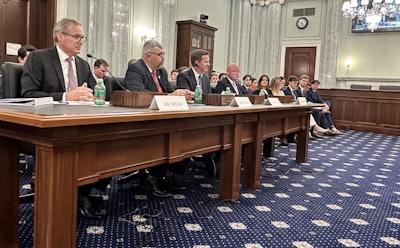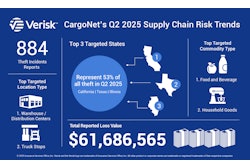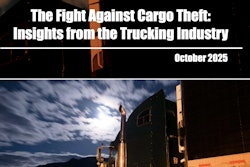
Tuesday's Senate hearing on the next highway bill was titled Shifting Gears: Issues Impacting the Trucking and Commercial Bus Industries in the U.S.
Among those issues brought up by four industry experts and members of the Subcommittee on Surface Transportation, Freight, Pipelines and Safety were nothing new. Instead, the laundry list of industry concerns was filled with familiar ones, including:
- the explosion of cargo theft
- whether autonomous vehicles are safe and if they'll eliminate driver jobs
- making electric vehicle owners somehow contribute to the Highway Trust Fund
- eliminating costly congestion-causing bottlenecks on highways
- the need for more truck parking
- allowing 18-20-year olds drive interstate
- elimination of the 12% federal excise tax on truck and trailer purchases
- guaranteed overtime pay for drivers
- whether there is a driver shortage, its causes and possible solutions
Owner Operator Independent Driver Association Executive Vice President Lewie Pugh, himself a long time truck driver in the military and civilian life, in his prepared testimony praised the change in Washington's approach to the trucking industry.
"The Trump Administration has embraced a new approach to developing trucking policy that prioritizes the needs of truckers," said Pugh.
Part of that change was Transportation Secretary Sean Duffy's announcement of nine initiatives to improve working conditions for truckers that directly addressed many longstanding driver concerns.
"These steps are a welcomed and long-overdue departure from the old ways of Washington," said Pugh. "They demonstrate regulators are finally prioritizing truckers over corporate mega-fleets, shippers, trial lawyers, and safety advocates."
Pugh then urged members of Congress to do the same.
"Truckers now need lawmakers to embrace the new approach taken by the White House with as much energy and resolve," he said. "I assure you this can be done in a bipartisan manner that promotes highway safety, improves driver recruitment and retention, and increases supply chain efficiency.
"Congress has the ability to make the next highway bill the most pro-trucker in history, but only if you commit to prioritizing their needs."
He also said not everyone in the industry will support such change.
"While truckers are thrilled folks in Washington are finally prioritizing their needs, others in our industry will resist this new approach," said Pugh. "They will want to return to the old way of doing things – when maximizing corporate profits, over-regulating small businesses, and dodging responsibility for improving working conditions for drivers took precedence."
In his opening testimony Teamsters General President Sean O'Brien urged the senators "to embrace legislative proposals that prioritize these workers and their labor and reject corporate schemes eager to make driving more dangerous, drivers more fatigued, or replace humans entirely with unproven technologies."
Chief among those "unproven technologies" O'Brien singled out were autonomous trucks.
"It is incomprehensible that in the same universe in which the federal government regulates the size of hazard material placards down to a millimeter, autonomous vehicles are permitted to freely roam the country without oversight," said O'Brien. "Allowing the unfettered and unregulated operation of autonomous vehicles — ultimately seeking to replace human drivers with robots — is unequivocally a threat to safety on our roadways and the existence of good jobs in the trucking industry. The surface reauthorization presents an opportunity for Congress to finally take decisive action on autonomous vehicles."
O'Brien was also critical of e-commerce giant Amazon, which relies on contractors for many of its freight delivery services. He said many of these entities use trucks with a GVWR less than 10,001 pounds, which means that because these vehicles are generally not classified as commercial motor vehicles because of their weight, they fall outside the scope of FMCSA’s safety authority.
Chris Spear, president and CEO of the American Trucking Associations, did not share O'Brien's view on autonomous trucks, which are rated on a scale of one to five, depending on how much automation is employed.
Spear said the first four levels of autonomy require drivers and have shown they can improve safety on the highway. He also said the widespread deployment of trucks with the fifth level -- full autonomy -- is still years in the future, and that autonomous trucks will not replace drivers.
Spear made the case for automation by saying none of the U.S. ports rank in the top 50 in the world because they have not embraced automation the way ports in other countries have.
In response to a question from Senator Deb Fischer (R-Nebraska) about the impact of electric vehicles not paying into the Highway Trust Fund, Spear said the simple solution is to do away with the tax paid on gasoline and diesel purchases, and simply have the owner of every vehicle pay a registration fee. This could be between $200 and $250 a year, and would ensure the owners of all vehicles pay into the fund.
Pugh said the federal government should maintain the gas and diesel taxes, and simply increase it, something that hasn't been done since 1993. He said owners of electric vehicles could pay a similar fee when they charge their cars or trucks.












